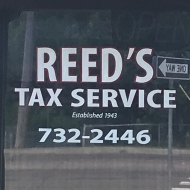Q & A with Sean Reed of Reed’s Tax Service in Midwest City. Sean and is an enrolled agent, a federally licensed taxation expert with nationwide rights to represent taxpayers before the Internal Revenue Service
Identity theft prompts review of tax returns for some in state
Q: I understand the Oklahoma Tax Commission is sending out letters, asking for original W2s and 1099s. If taxpayers don’t respond within 30 days, the refund could be held up. Why?
A: Throughout this state, taxpayers have been victims of identity theft by those filing fraudulent income tax returns. The Oklahoma Tax Commission is trying to protect taxpayers by verifying returns are legitimate. Sometimes, however, these safeguards can impact the honest taxpayer whose return is randomly selected for review. When a taxpayer receives this request, it’s imperative to verify information submitted on an electronically filed return or to request information that is missing on a paper-filed return. This request is for the protection of taxpayers.
Q: What triggers these letters?
A: In reviewing tax returns, the Oklahoma Tax Commission may determine a need exists to verify return information, including employer or retirement fund information, wages or retirement distributions or the amount of Oklahoma withholding.
Q: If a taxpayer receives one of these letters does that mean they’re a victim of fraud?
A: Generally, no. The Oklahoma Tax Commission is simply attempting to verify the information on the return. However, there have been instances where the taxpayer contacts the Tax Commission after receiving the correspondence explaining that they haven’t yet filed a return. This provides an extra safeguard against others using your information to file a fraudulent tax return.
Q: What should a taxpayer do if they receive one of these “fraud” letters?
A: These letters aren’t “fraud” letters’ they’re requests for information to prevent potential fraud. If a taxpayer receives a letter requesting additional information, they should contact their tax professional or send the additional requested information to the Oklahoma Tax Commission along with a copy of the letter. If you have received a letter and are still unsure what to do, there’s a number on the letter that you can call. If the taxpayer hasn’t yet filed an income tax return, and believes they may be the victim of identity theft, they should contact their tax professional; file with the Internal Revenue Service the IRS Affidavit form 14039; send a copy of IRS Affidavit form 14039 along with supporting documentation to the Oklahoma Tax Commission; and provide a signed statement, including a daytime contact phone number, that you’re a victim of ID theft or fraudulent return filing to: OTC, AMD-INCOME TAX-IDENTITY THEFT, PO BOX 269060, OKLAHOMA CITY, OK 73126-9060 PAULA BURKES, BUSINESS WRITER
